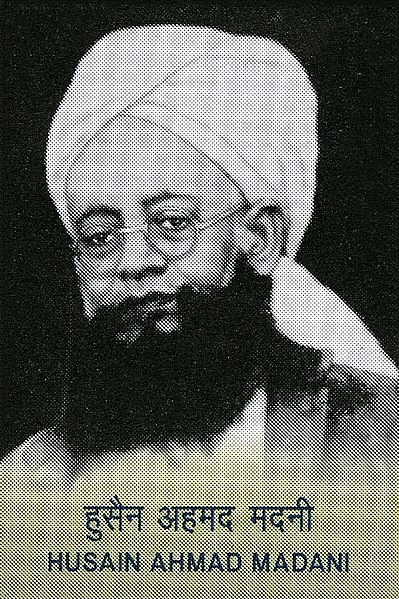The Deobandi movement or Deobandism is a revivalist movement within Sunni Islam that adheres to the Hanafi school of law. It formed in the late 19th century around the Darul Uloom Madrassa in Deoband, India, from which the name derives, by Muhammad Qasim Nanautavi, Rashid Ahmad Gangohi, and several others, after the Indian Rebellion of 1857–58. They opposed influence of non-Muslim cultures on the Muslim of South Asia. The movement pioneered education in religious sciences through the Dars-i-Nizami associated with the Lucknow-based ulama of Firangi Mahal with the goal of preserving traditional Islamic teachings from the influx of modernist, secular ideas during British colonial rule. The Deobandi movement's Indian clerical wing, Jamiat Ulema-e-Hind, was founded in 1919 and played a major role in the Indian independence movement through its participation in the Pan-Islamist Khilafat movement and propagation of the doctrine of composite nationalism.
Image: Darul Uloom Deoband
Image: Mahmud Hasan Deobandi (cropped)
Image: Hussain Ahmad Madani (cropped)
Image: Sabbir Ahmad Usmani (cropped)
Sunni Islam is the largest branch of Islam, followed by 85–90% of the world's Muslims, and simultaneously the largest religious denomination in the world. Its name comes from the word Sunnah, referring to the tradition of Muhammad. The differences between Sunni and Shia Muslims arose from a disagreement over the succession to Muhammad and subsequently acquired broader political significance, as well as theological and juridical dimensions. According to Sunni traditions, Muhammad left no successor and the participants of the Saqifah event appointed Abu Bakr as the next-in-line. This contrasts with the Shia view, which holds that Muhammad appointed his son-in-law and cousin Ali ibn Abi Talib as his successor.
Istiqlal Mosque in Jakarta, Indonesia.
The Great Mosque of Kairouan (also known as the Mosque of Uqba) in the city of Kairouan, Tunisia, was, particularly from the 9th to 11th century, an important center of Islamic learning with an emphasis on the Maliki Madh'hab.
Muhammed accompanied by the archangels Gabriel, Michael, Israfil und Azrael. Turkish Siyer-i-Nebi-work, 1595
Historic Quran of Old Dhaka, Bangladesh








